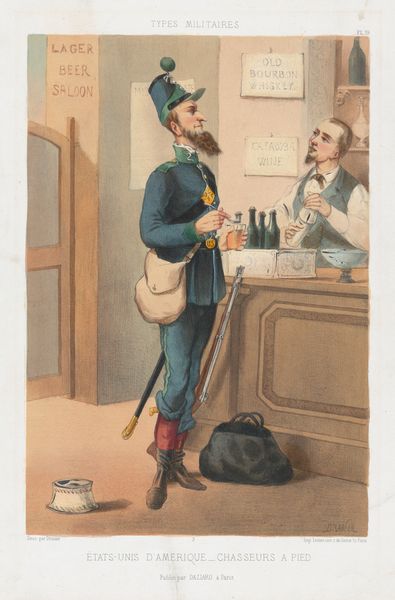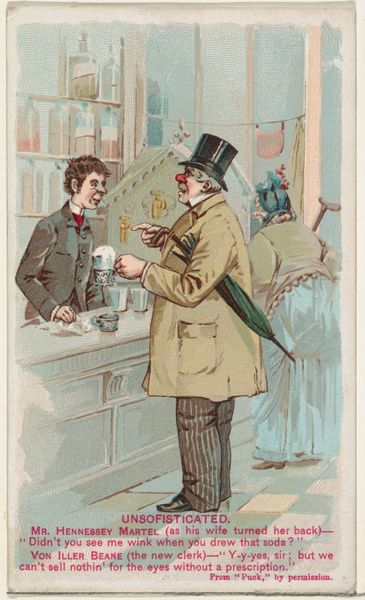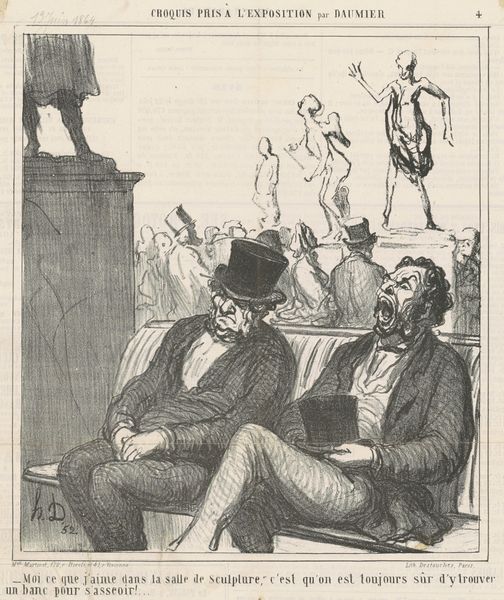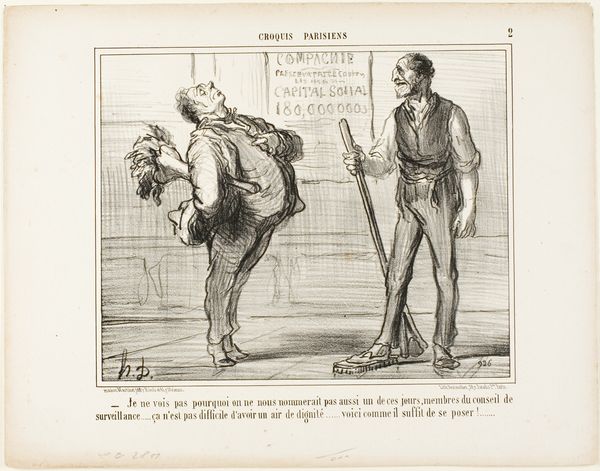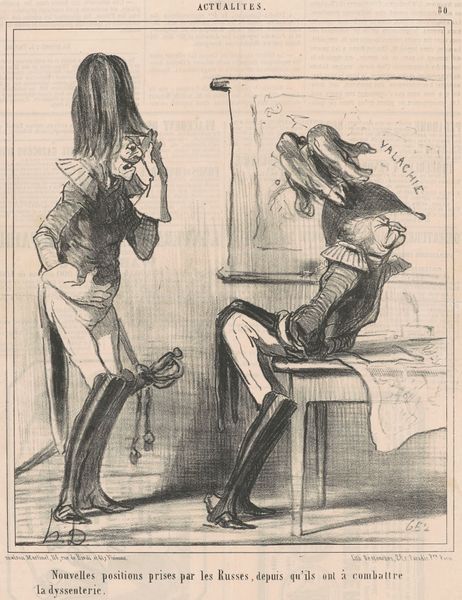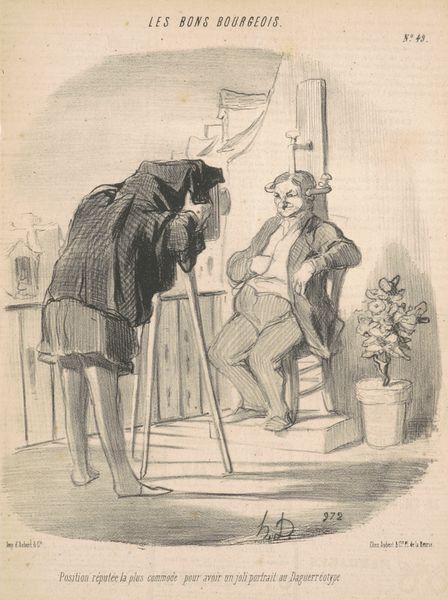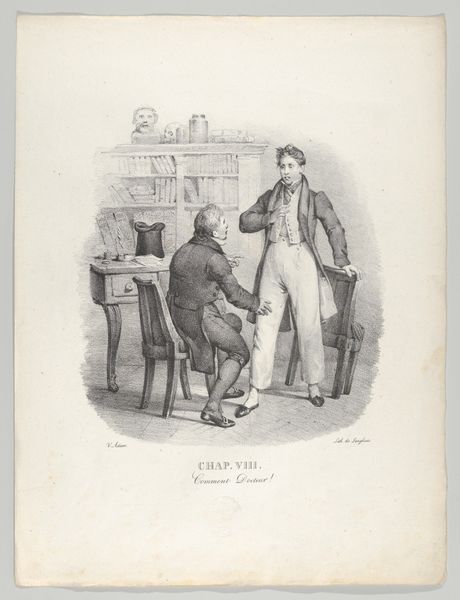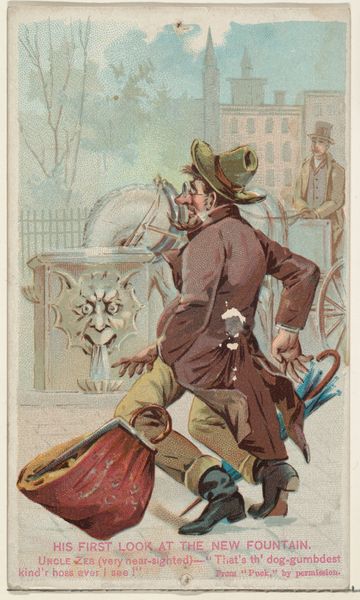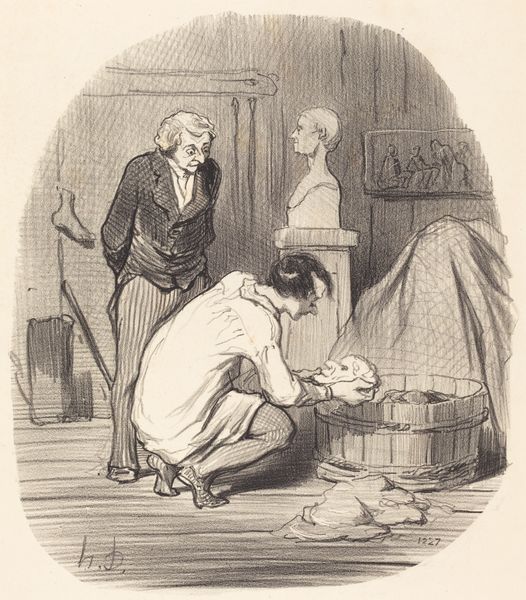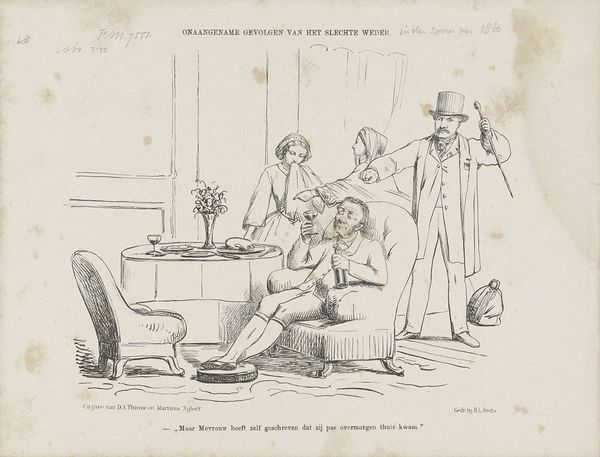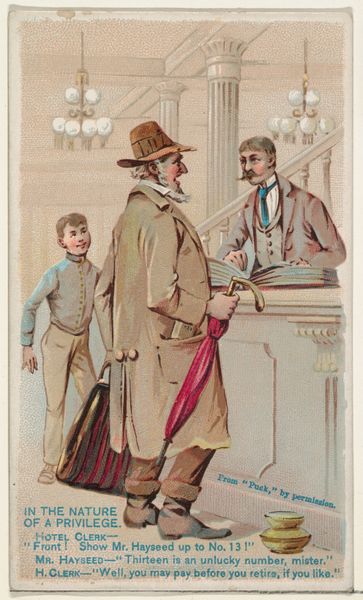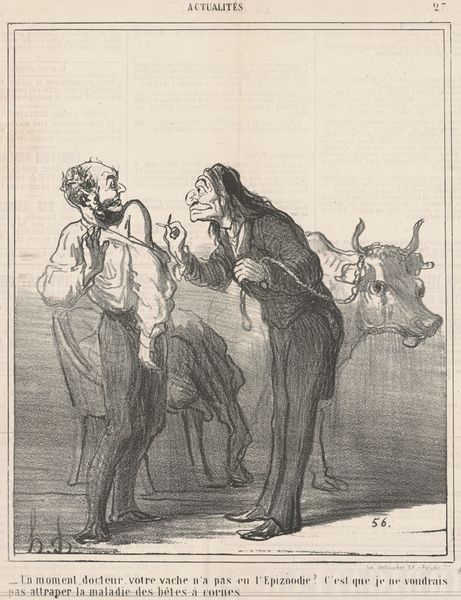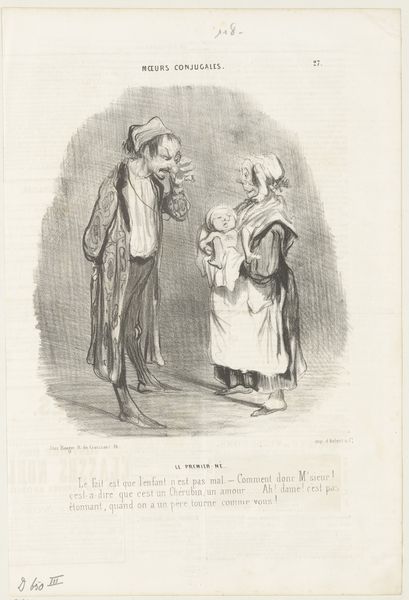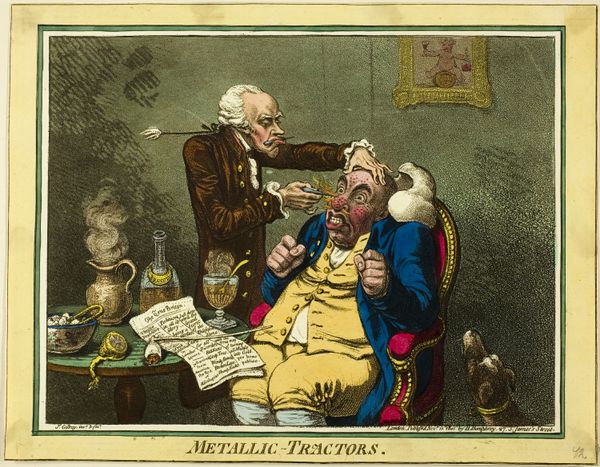
Not Used To It, from the Snapshots from "Puck" series (N128) issued by Duke Sons & Co. to promote Honest Long Cut Tobacco 1888
0:00
0:00
drawing, coloured-pencil, print
#
drawing
#
coloured-pencil
# print
#
caricature
#
coloured pencil
#
genre-painting
Dimensions: Sheet: 4 3/16 × 2 1/2 in. (10.6 × 6.4 cm)
Copyright: Public Domain
This trade card, "Not Used To It," was created around 1880 by W. Duke, Sons & Co. to promote Honest Long Cut Tobacco. It's a telling example of the cultural landscape of the time, reflecting both class anxieties and deeply ingrained racial stereotypes. The image depicts a white man, Mr. Timothy Sead, seemingly bewildered by a Black waiter in a New York dime restaurant, a place where cheap food was available to the working classes. The waiter's exaggerated features are rendered using caricature and racist tropes common in the period, reflecting the deeply rooted prejudices of the time. Dime restaurants themselves are an important part of the story here: they were an innovation in democratizing access to food and a challenge to existing social hierarchies. This card creates meaning by associating class anxieties with racist imagery. To fully understand the card's significance, we need to look at periodicals from the time, to find out what 'dime restaurants' meant to late 19th century New Yorkers. We might also research the advertising strategies employed by tobacco companies at the time, looking for patterns in the ways that they are racialized. It's in those details that the meaning of art is revealed.
Comments
No comments
Be the first to comment and join the conversation on the ultimate creative platform.
